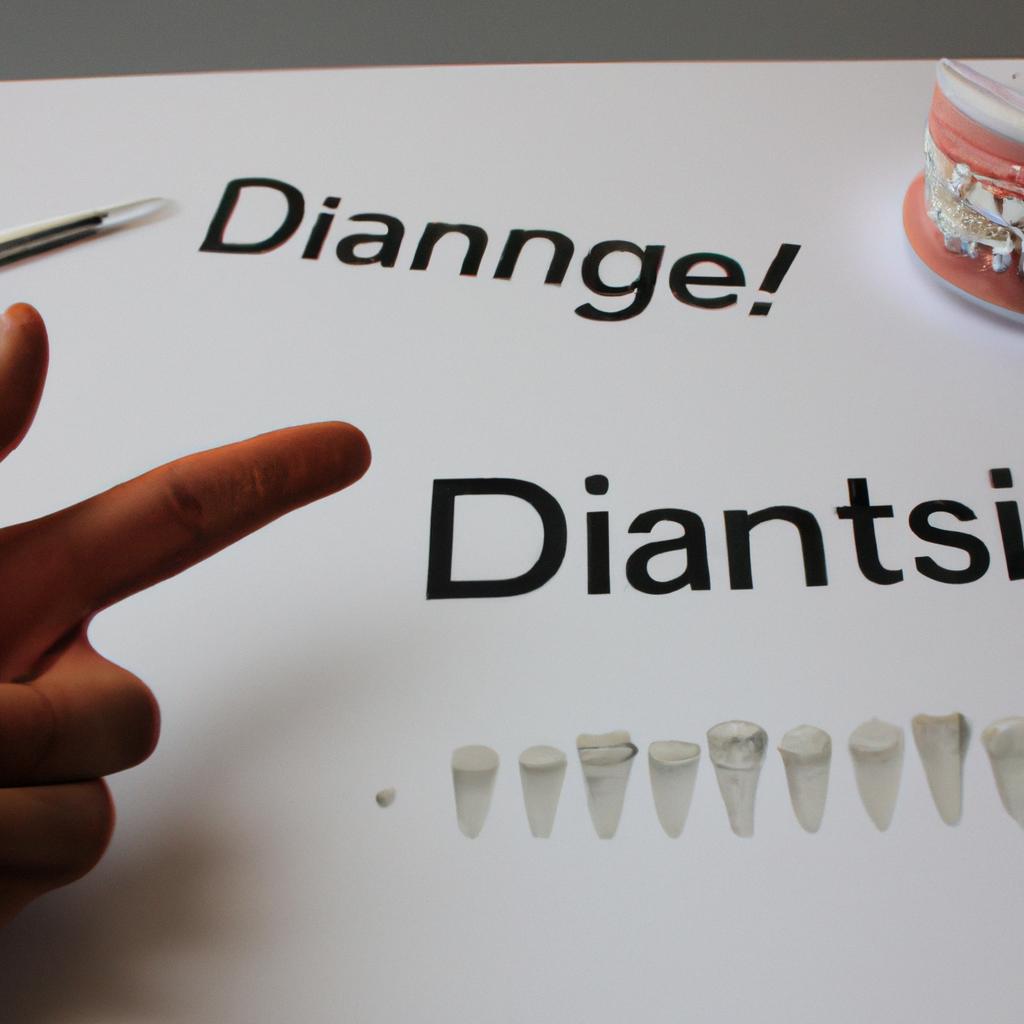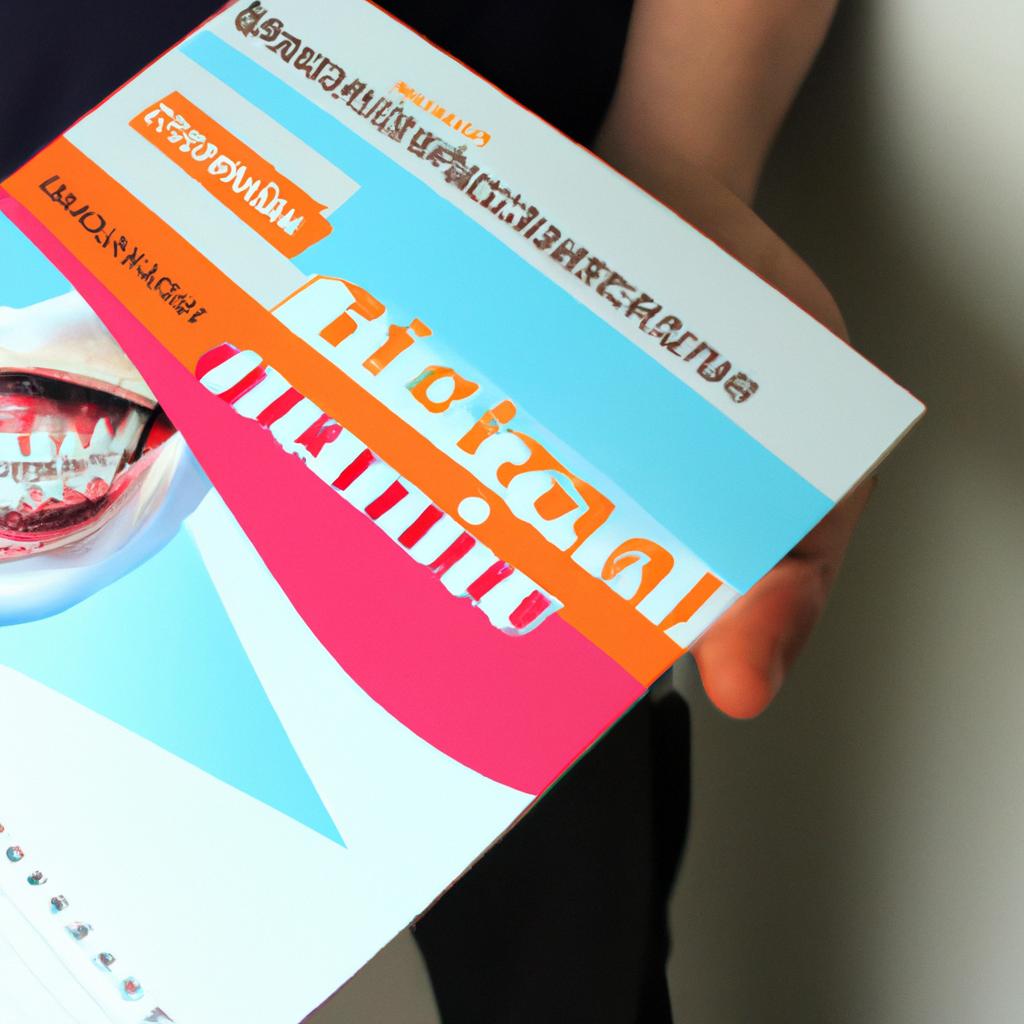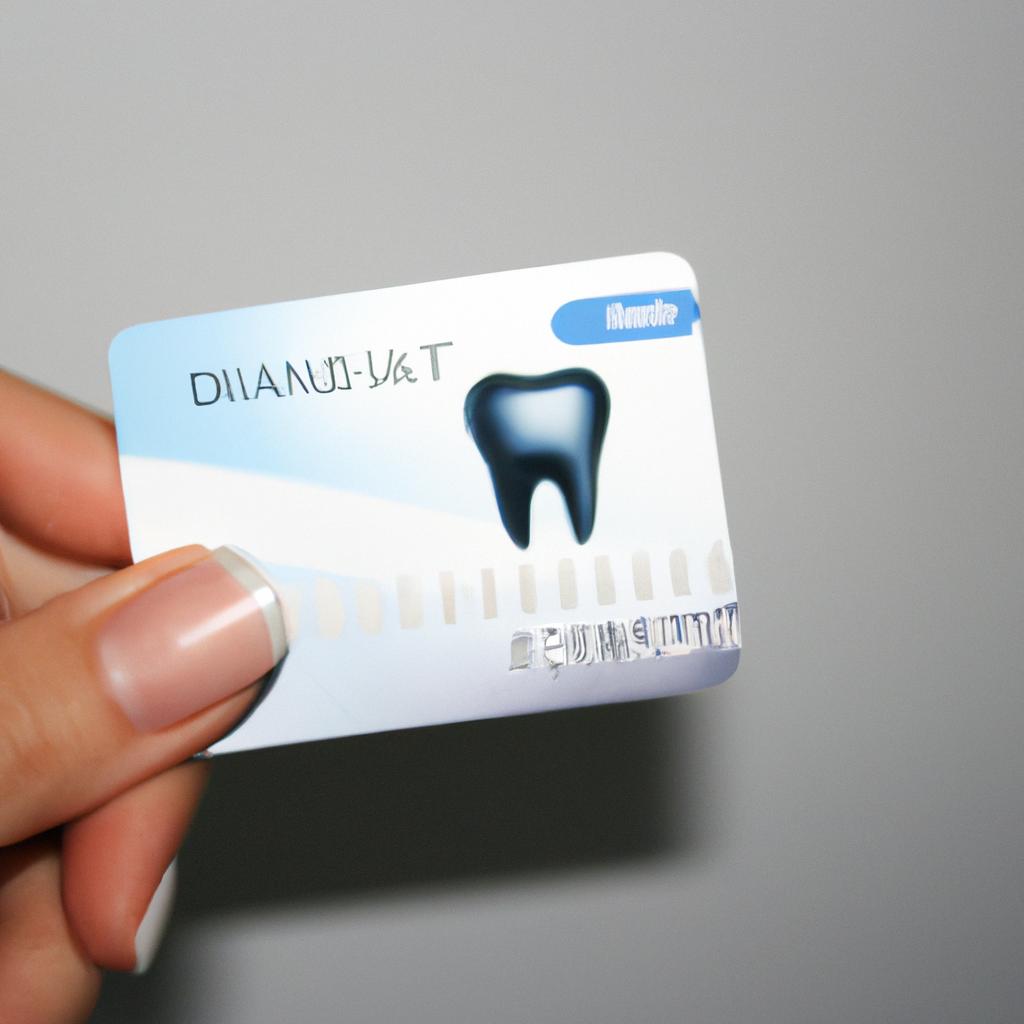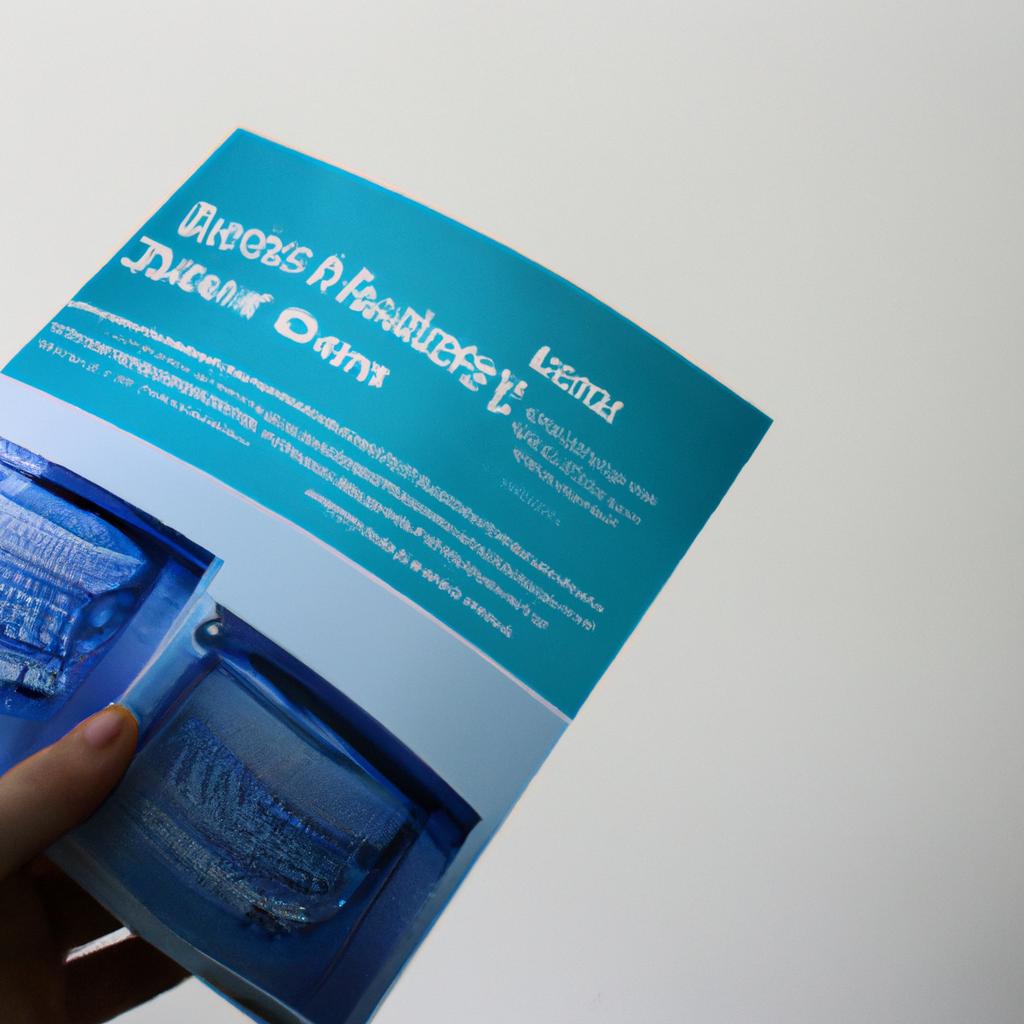In-House Financing: Dental Specialty and Dental Financing Explained

In the world of dentistry, specialized dental treatments often come with a hefty price tag. Take for example, John, a hardworking individual who recently discovered that he requires orthodontic treatment to correct his misaligned teeth and improve his overall oral health. However, upon receiving the estimate for this complex procedure, John found himself faced with a significant financial burden. In situations like these, in-house financing options can provide individuals like John with much-needed relief by offering flexible payment plans tailored to their specific needs.
This article aims to explore the concept of in-house financing within the context of dental specialty treatments. By delving into the intricacies of this unique form of financing, we seek to shed light on how it operates and its potential benefits for both patients and practitioners alike. Furthermore, we will analyze various factors that influence in-house financing arrangements such as interest rates, eligibility criteria, and repayment terms. Through an examination of real-life case studies and hypothetical scenarios, readers will gain a comprehensive understanding of how in-house financing can be utilized as a valuable tool in facilitating access to quality dental care while managing financial constraints effectively.
Understanding In-House Financing
Imagine you have been experiencing severe tooth pain for weeks, but due to financial constraints, you haven’t been able to seek the necessary dental treatment. This hypothetical scenario highlights a common dilemma faced by many individuals who require dental procedures but lack immediate access to funds. However, there is an alternative option that may alleviate this predicament – in-house financing.
In-house financing refers to a payment arrangement offered directly by the dental practice or clinic where the procedure will be performed. Rather than relying on external lenders such as banks or credit unions, patients can work out a mutually agreeable payment plan with their dentist’s office. This allows individuals to receive the essential dental care they need while spreading out the cost over time.
To better understand how in-house financing works and its potential benefits, consider the following:
- Convenience: With in-house financing, patients can often complete all aspects of their treatment process within one location. From initial consultation through treatment completion and payment arrangements, everything can be conveniently managed at the same facility.
- Flexibility: Dental practices offering in-house financing typically provide flexible repayment options tailored to individual needs. These plans may range from interest-free installments spread across several months to extended-term loans with low-interest rates.
- Accessibility: Traditional lending institutions might deny credit applications based on factors like poor credit history or limited income prospects. In contrast, many dental clinics are more lenient when it comes to approving in-house financing arrangements since they have firsthand knowledge of their patients’ specific circumstances.
- Peace of mind: By opting for in-house financing, patients can proceed with their much-needed dental treatments without facing undue stress about upfront costs or managing debt obtained from third-party lenders.
The table below provides a visual representation of some key aspects associated with in-house financing:
| Aspects | Description |
|---|---|
| Convenience | All-in-one location for consultations, procedures, and payment arrangements. |
| Flexibility | Tailored repayment plans with varying interest rates and terms. |
| Accessibility | Increased approval chances compared to traditional lending institutions. |
| Peace of mind | Ability to receive essential dental care without immediate financial burden. |
As illustrated above, in-house financing offers a range of advantages that can significantly impact individuals seeking dental treatment but facing financial constraints. In the subsequent section, we will delve further into the specific benefits provided by this unique approach.
Next, let’s explore the “Advantages of In-House Financing for Dental Procedures” and discover how patients can benefit from this alternative payment option.
Advantages of In-House Financing for Dental Procedures
Understanding In-House Financing for Dental Procedures
Imagine a scenario where Sarah, a young professional in need of extensive dental work, finds herself facing the daunting costs associated with her treatment plan. As she explores various options to finance her dental procedures, Sarah comes across the concept of in-house financing offered by some dental practices. This section aims to shed light on this financing option and its benefits.
In-house financing is an arrangement provided directly by the dental practice itself, allowing patients like Sarah to pay for their treatments over time instead of upfront. Unlike traditional methods that involve third-party lenders or insurance companies, in-house financing offers a more streamlined approach within the confines of the practice. Through this scheme, patients can receive essential dental care without being burdened by immediate financial constraints.
The advantages of choosing in-house financing for your dental procedures are numerous:
- Flexibility: In-house financing often provides flexible payment plans tailored to suit individual needs. The ability to spread out payments over months or years enables patients to manage their finances effectively while receiving necessary treatment.
- Accessibility: Compared to alternative funding sources such as loans or credit cards, in-house financing may be more accessible since it typically does not require stringent credit checks or high credit scores.
- Personalized Options: Dental practices offering in-house financing understand that every patient’s situation is unique. Hence, they strive to provide personalized solutions based on each individual’s circumstances and requirements.
- Convenience: With in-house financing, all aspects of payment arrangements can be managed under one roof – from initial consultation through treatment completion. Patients can enjoy peace of mind knowing that their financial matters align seamlessly with their oral health goals.
To further illustrate the potential impact of in-house financing on individuals seeking dental services, consider the following table showcasing hypothetical monthly payment options for various common procedures:
| Procedure | Total Cost ($) | 12-month Plan ($) | 24-month Plan ($) |
|---|---|---|---|
| Dental Implants | 4,000 | $333.33 | $166.67 |
| Root Canal | 800 | $66.67 | $33.33 |
| Orthodontics | 5,500 | $458.33 | $229.17 |
| Teeth Whitening | 300 | $25 | $12.50 |
The above table showcases the potential financial relief and affordability that in-house financing can offer patients like Sarah who may not have immediate access to large sums of money but still require essential dental care.
As individuals consider their options for financing dental procedures, it is crucial to weigh various factors carefully. In the subsequent section about “Factors to Consider When Choosing a Dental Specialty,” we will explore key considerations one should keep in mind when selecting a specific area within dentistry.
[Transition sentence] Understanding the significance of choosing an appropriate dental specialty is vital for both aspiring dentists and patients seeking specialized care.
Factors to Consider When Choosing a Dental Specialty
Imagine a scenario where an individual requires extensive dental work, such as multiple tooth extractions and the placement of dental implants. The cost of these procedures can be overwhelming, often reaching thousands of dollars. However, with the availability of in-house financing options provided by dental specialty clinics, individuals have the opportunity to receive the required treatment while effectively managing their financial obligations.
One significant advantage of choosing in-house financing is the convenience it offers patients. Unlike traditional third-party lenders or insurance companies that may require lengthy approval processes or impose strict criteria for eligibility, in-house financing allows patients to receive immediate approval directly from the clinic. This means that individuals can proceed with their necessary treatments without undue delay or stress.
Moreover, in-house financing provides patients with flexible repayment options tailored to their unique circumstances. These options typically include low-interest rates and extended payment plans that enable individuals to spread out the cost over time, making it more manageable within their budgets. By offering personalized payment arrangements, dental specialty clinics aim to alleviate the financial burden on patients while ensuring they receive quality care.
To further emphasize the benefits of in-house financing, consider the following four points:
- No need for external credit checks: In contrast to traditional lending institutions, in-house financing does not usually involve scrutinizing credit scores.
- Increased accessibility: In-house financing enables individuals who may have been turned away by other lenders due to poor credit histories or lack of collateral to still access vital dental treatments.
- Enhanced patient-doctor relationship: By providing direct financial assistance through in-house financing programs, dental clinics foster stronger connections and trust between patients and practitioners.
- Streamlined administrative process: With all aspects of treatment consolidated under one provider – including finances – paperwork and administrative tasks are simplified for both parties involved.
The advantages discussed above highlight how in-house financing empowers individuals seeking essential dental procedures by removing financial barriers and promoting accessible healthcare services. As we delve into the next section on “Factors to Consider When Choosing a Dental Specialty,” it is important to understand the potential costs associated with different dental specialties and how they may influence one’s decision-making process.
Costs Associated with Different Dental Specialties
Having discussed the various dental specialties, it is important to consider certain factors when choosing which specialty to pursue. Let us explore some key considerations that can help guide your decision-making process.
Case Study Example: Imagine a dentist named Dr. Smith who is passionate about both prosthodontics and endodontics. To make an informed choice between the two, Dr. Smith should evaluate personal preferences, market demand, career opportunities, and financial implications.
-
Personal Preferences: Each dental specialty requires specific skills and interests. Reflect on what aspects of dentistry bring you joy and fulfillment. Consider whether you prefer working with children or adults, performing surgical procedures or restorative work, or focusing on cosmetic enhancements or oral health maintenance.
-
Market Demand: Research the current trends in dental care and identify areas where there is high patient demand for specialized services. For example, orthodontics has seen increased popularity due to its ability to improve aesthetics and correct misaligned teeth, resulting in a higher demand for orthodontists.
-
Career Opportunities: Investigate potential job prospects in each specialty by exploring employment rates and growth projections. Some specialties may offer more opportunities in private practice settings, while others might have greater chances for academic positions or involvement in research projects.
-
Financial Implications: Evaluate the economic aspect of each specialty by considering income potential, overhead costs associated with running a practice in that field, as well as any necessary investments in equipment or continuing education courses required to excel in the chosen area.
- Fulfilling patients’ unique needs through specialized treatment options
- Making a positive impact on individuals’ quality of life
- Being recognized as an expert within a particular dental field
- The satisfaction derived from overcoming complex clinical challenges
Table – Pros and Cons:
| Pros | Cons |
|---|---|
| Specialized expertise | Limited patient diversity |
| Higher income potential | Longer training period |
| Opportunities for professional growth | Narrow focus of practice |
| Job security and demand | Increased responsibility |
Understanding these factors will undoubtedly facilitate your decision-making process.
Exploring Dental Insurance Options
In the previous section, we discussed the various costs associated with different dental specialties. Now, let’s delve into exploring dental financing options that can help you manage these expenses effectively. To illustrate this further, let’s consider a hypothetical case study:
Imagine Sarah, a working professional who requires extensive orthodontic treatment to correct her misaligned teeth. The total cost of the treatment is estimated at $5,000. Sarah doesn’t have sufficient funds available immediately and needs financial assistance to cover the expenses.
When it comes to dental financing, there are several options available to individuals like Sarah. Consider the following points as you explore your own possibilities:
- In-House Financing: Many dental practices offer in-house financing programs where patients can pay for their treatments in installments over an agreed-upon period. This allows individuals to spread out the expense and make it more manageable within their budget.
- Personal Loans: Another option is obtaining a personal loan from a bank or credit union. These loans provide immediate access to funds which can be used towards dental procedures. However, it is important to carefully review the terms and interest rates associated with such loans before committing.
- Credit Cards: Some individuals may choose to use credit cards for paying dental expenses. While convenient, it’s essential to keep in mind that high-interest rates on credit card balances can lead to long-term debt if not managed responsibly.
- Medical/Dental Loans: Specialized medical or dental loans are specifically designed for funding healthcare-related expenses. These loans often come with competitive interest rates and flexible repayment plans tailored to individual needs.
To help visualize how these financing options compare, here’s a table outlining their key features:
| Financing Option | Pros | Cons |
|---|---|---|
| In-House Financing | Easy installment payments | Limited availability |
| Personal Loans | Quick access to funds | Higher interest rates |
| Credit Cards | Convenient | Potential for high debt |
| Medical/Dental Loans | Tailored repayment plans | Application approval process |
By considering these options and weighing their pros and cons, individuals like Sarah can make informed decisions about financing their dental treatments. Managing dental expenses is crucial for maintaining oral health without undue financial stress.
Understanding how to budget and prioritize your spending can go a long way in ensuring that you receive the necessary dental care while keeping costs manageable.
Tips for Managing Dental Expenses
Exploring In-House Financing: A Viable Dental Financing Option
As an alternative to traditional dental insurance, in-house financing has gained popularity among patients seeking specialized dental care. This section aims to shed light on the concept of in-house financing within the context of dental specialties and explain how it can help individuals manage their dental expenses effectively.
To illustrate its practical application, consider a hypothetical case study involving Sarah, who requires orthodontic treatment to correct her misaligned teeth. Due to the complexity of her case, Sarah’s dentist refers her to a specialist orthodontist who offers in-house financing options. With this arrangement, Sarah is able to receive the necessary orthodontic treatment without having to rely solely on conventional insurance coverage or upfront payment.
In-house financing presents several advantages for patients seeking specialized dental services:
- Flexibility: Unlike some insurance plans that have strict limitations on covered treatments or waiting periods before specific procedures are eligible, in-house financing allows patients immediate access to needed treatments.
- Personalized Payment Plans: In-house financing provides customized payment plans tailored to individual financial situations. Patients can choose installment schedules that best suit their budgets and preferences.
- Simplified Process: By eliminating third-party intermediaries typically associated with insurance claims processing, in-house financing streamlines administrative tasks, making the process more straightforward for both providers and patients.
- Extended Treatment Options: Dental specialists often offer advanced procedures not always covered by standard insurances. In-house financing enables patients to explore these additional treatment options without undue financial burden.
The following table highlights key considerations when comparing traditional dental insurance with in-house financing:
| Features | Traditional Dental Insurance | In-House Financing |
|---|---|---|
| Waiting Periods | Yes | No |
| Coverage Limitations | May Apply | Flexible |
| Administrative Hassles | Complex | Streamlined |
| Customizable Payments | No | Yes |
| Access to Specialized Procedures | Limited | Expanded |
In conclusion, in-house financing offers patients a viable alternative for managing dental expenses associated with specialized treatments. With its flexible payment plans and simplified administrative procedures, this option provides greater accessibility to necessary dental care. By exploring the advantages of in-house financing, individuals can make informed decisions about their oral health while effectively managing financial obligations.
Next section: ‘Tips for Managing Dental Expenses’






